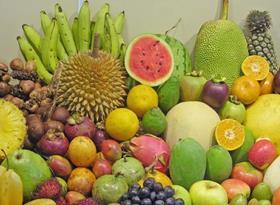
Poor infrastructure is hindering Indonesia's competitiveness in the international fresh produce trade and needs to be urgently addressed, according to the country's horticulture experts.
Slow transportation links and poor packing and storage facilities are the main problems, the Jakarta Globe reported.
In 2007 ASEAN leaders agreed to establish a single market for the region, to be known as the ASEAN Economic Community, by 2015, with benefits such as no trade tariffs and quicker customs clearances between member nations.
"If there is no improvement in infrastructure, which leads to poor-quality produce, it will be difficult for us to sell fresh produce and compete with produce from other countries in the ASEAN Economic Community," said Indonesian Fruits and Vegetables Exporters Association chairman Hasan Johnny Widjaja.
Mr Widjaja said the best example of Indonesia's declining stature could be seen by studying its market share in Singapore.
According to data from research and consulting firm Frost & Sullivan, Indonesia's share of Singapore's fresh produce import market has dropped from around 30 per cent 20 years ago to just 6 per cent last year, while 28 per cent of Singapore's produce now comes from China.
Acting chairman of the Indonesian Chamber of Commerce and Industry Adi Putra Tahir said his country must begin preparing for the introduction of the ASEAN Economic Community now.
Mr Tahir said that without improvements to infrastructure, Indonesian fresh produce would not be able to compete in export markets with countries such as Malaysia, Thailand and Vietnam, and could begin to struggle domestically as well.
Over the last few years Indonesia has imported more fresh produce from its neighbours. In 2008, it imported US$124m worth of oranges from China, compared to US$71.8m in 2006, and Indonesia imported $30.8m worth of durians from Thailand in 2008, double that of 2006.






No comments yet